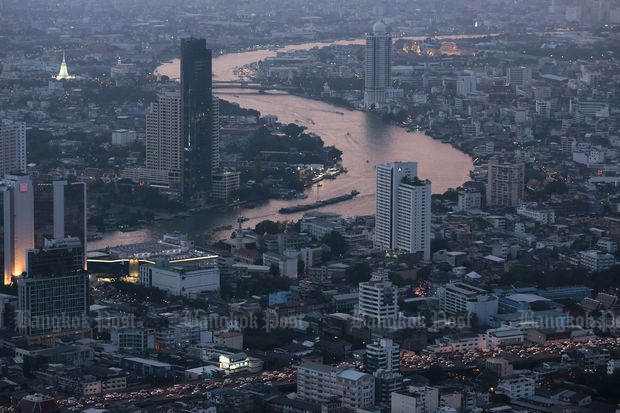
While there is an ongoing debate about whether the hazy Bangkok skyline is just a blip on the radar or Bangkokians need to get used to wearing N95 masks, the future of Bangkok's property market has also become overcast with significant changes approaching.
The country's first general election in eight years will take place on March 24. Not only will the poll help improve foreign investors' sentiment, it will bring new policies on the property market that each party will be promoting.
Whoever emerges as the winner will have an impact on the economy and the progress of infrastructure projects across Thailand in terms of continuity and direction. In any case, the impact is expected to be short-term.
The tighter mortgage regulation for second homes to come into effect on April 1 will directly hit the condominium market, especially speculative buyers. The regulation may cool down the residential market and put more focus on real demand from end-users.
This will prompt developers to turn to foreign buyers who use their own funds to purchase condominium units. However, the focus on foreign buyers comes with some uncertainty from external factors and questions on the sustainability of the market.
The new land and property tax law, coming into effect on Jan 1, 2020, aims to increase the effectiveness of land use, reduce inequality and make taxation more defined with the new structure.
It will put more pressure on companies with land banks which will have to put them to use or release them back to the market. To make the new tax structure clearer, the law also needs solid and well-defined criteria for what is considered vacant land and land used for agricultural or commercial purposes.
The new Bangkok City Plan, aiming to create smarter growth and transforming Bangkok into a more outward-looking city, is expected to be implemented in early 2020. We have yet to see what changes will be made to zoning as it is in the planning stage.
The increasing floor-area-ratio (FAR) across the board will not induce smarter growth. But thoughtful changes like reducing parking requirements or incentives on new city nodes to be built in outer areas will change the market.
Many developers are holding back to see what changes will be made to the city plan before coming up with new developments.
Significant changes in the property market will be brought on not only by new regulations and policies, but also by waves of large-scale mixed-use developments across Bangkok which will bring massive new supply in every sector to the market.
Major mixed-use projects still under construction like Samyan Mitrtown, The Parq, One Bangkok, Dusit Central Park, Sindhorn Village and Whizdom 101 will bring millions of square metres of saleable and leasable space into the market. Whether these will fuel or flood the market depends on when they are completed.
Rathawat Kuvijitrsuwan is a manager at Research and Consulting, CBRE Thailand. He can be reached at bangkok@cbre.co.th Facebook: CBRE Thailand LinkedIn: CBRE Thailand Line@: CBRE Thailand Twitter: @CBREThailand and website: www.cbre.co.th